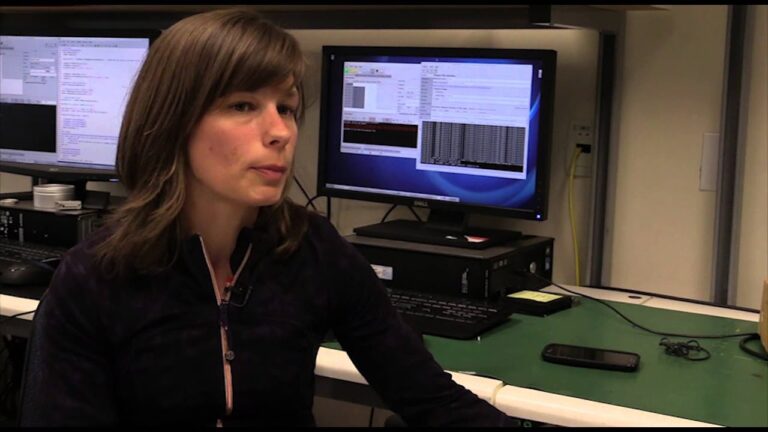Casting Director Job: Responsibilities & Salary

Casting Director Job Description Template
A casting director is a professional responsible for finding and selecting actors for roles in film, television, theater, and other performing arts productions. They work closely with directors, producers, and sometimes writers to understand the requirements of the characters and the overall vision of the project. One of the important aspects of a casting director’s job is to hold auditions and conduct casting calls. They review resumes and headshots, and then invite potential actors to audition for specific roles. During auditions, casting directors assess the actors’ performances, their suitability for the characters, and their chemistry with other cast members. Another crucial responsibility of a casting director is to network and build relationships within the industry. They attend industry events, film festivals, and theater productions to discover new talent and keep up with current trends. They also maintain a database of actors and their skills, which helps them match the right talent to the right role. Casting directors need to have a keen eye for talent, strong communication skills, and excellent interpersonal skills. They must be able to understand the nuances of a character and determine if an actor can bring it to life convincingly. They also need to be organized and detail-oriented, as they often have to manage a large number of auditions and keep track of numerous actors. Overall, a casting director plays a vital role in bringing a production to life by finding the perfect actors to portray the characters. Their expertise and ability to identify talent are crucial in creating a successful and memorable performance.Casting Director Responsibilities
Casting Director Requirements
How Much Does A Casting Director Make?
Casting Director Salary
| Experience Level | Annual Salary |
|---|---|
| Entry Level | $40,000 – $60,000 |
| Mid-Career | $60,000 – $80,000 |
| Experienced | $80,000 – $100,000 |
| Senior Level | $100,000+ |
A Casting Director is responsible for finding and selecting actors for roles in film, television, or theater productions. Their salary varies based on their experience level. Entry-level Casting Directors can earn between $40,000 to $60,000 annually. Mid-career professionals can expect to earn between $60,000 to $80,000. Experienced Casting Directors can earn between $80,000 to $100,000. Senior-level professionals with extensive experience can earn $100,000 or more per year. These salary ranges may vary depending on factors such as location, industry, and the size of the production company.
Casting Director Salaries by Country
Top Paying Countries for Casting Director
| Country | Average Salary (USD) |
|---|---|
| United States | 80,000 |
| United Kingdom | 70,000 |
| Australia | 60,000 |
| Canada | 55,000 |
| Germany | 50,000 |
A casting director plays a crucial role in the entertainment industry, responsible for selecting actors and actresses for various roles in movies, TV shows, commercials, and theater productions. The salary of casting directors varies by country. According to recent data, the top paying countries for casting directors include the United States, United Kingdom, Australia, Canada, and Germany.
A video on the topic Casting Director
Video Source : SAG-AFTRA FoundationInterview Questions for Casting Director
1. Could you please tell us about your role as a casting director?
As a casting director, my primary responsibility is to find the right actors or performers for a specific project, such as a film, TV show, or theater production. I work closely with the production team and directors to understand their vision and casting requirements, conduct auditions, and make final recommendations for casting decisions.
2. What qualities do you look for in actors during auditions?
During auditions, I look for a combination of talent, versatility, and the ability to bring a character to life. I also consider factors like screen presence, charisma, and the actor’s ability to take direction and collaborate with the rest of the team.
3. How do you source potential actors for auditions?
I source potential actors through a variety of methods. This includes working with talent agencies, attending theater performances, reviewing showreels and self-tapes, conducting open casting calls, and networking within the industry. I also rely on my knowledge of actors who have previously auditioned for roles and may be suitable for future projects.
4. How do you handle rejection and delivering bad news to actors?
Rejection is a part of the casting process, and it’s important to handle it with sensitivity and professionalism. When delivering bad news to actors, I try to provide constructive feedback and encourage them to continue working on their craft. It’s essential to maintain open and honest communication while also being empathetic to their feelings.
5. How do you stay updated on current trends and new talent in the industry?
I stay updated on current trends and new talent in the industry by attending industry events, film festivals, and showcases. I also follow industry news, watch new films and TV shows, and actively engage with other casting directors and professionals in the field.
6. Can you explain the casting process you typically follow?
The casting process typically starts with a thorough understanding of the project’s requirements and character breakdowns. I then source potential actors, conduct auditions, and shortlist the most promising candidates. After discussing with the production team and directors, I make final casting recommendations. This process may involve multiple rounds of auditions and callbacks.
7. How do you ensure diversity and representation in your casting choices?
Ensuring diversity and representation is an important aspect of my role as a casting director. I actively seek out actors from different backgrounds, ethnicities, and cultures to ensure a fair and inclusive casting process. I also collaborate with the production team to promote diversity and representation in the final casting choices.
8. What challenges do you often face as a casting director?
One of the common challenges I face as a casting director is finding the perfect balance between the artistic vision of the project and the practical considerations, such as budget and availability of actors. Additionally, managing the expectations of directors, producers, and actors can sometimes be challenging, as everyone may have different ideas and preferences.
9. How do you handle conflicts or disagreements with directors or producers regarding casting choices?
Handling conflicts or disagreements regarding casting choices requires effective communication and a collaborative approach. I listen to the concerns and preferences of directors or producers, and then explain my casting decisions based on the project’s requirements. I try to find common ground and work towards a solution that satisfies all parties involved.
10. What do you enjoy most about being a casting director?
What I enjoy most about being a casting director is the opportunity to discover new talent and witness actors bring characters to life. It’s fulfilling to see the final product and knowing that I played a role in assembling the cast that contributed to the success of a project. I also enjoy the collaborative nature of the job and working with various talented individuals in the industry.
The Best Universities For The Casting Director Profession.
- Tisch School of the Arts at New York University
- UCLA School of Theater, Film and Television
- The Juilliard School
- London Academy of Music and Dramatic Art (LAMDA)
- Royal Academy of Dramatic Art (RADA)
- Yale School of Drama
- University of Southern California School of Dramatic Arts
- Carnegie Mellon University School of Drama
- Royal Central School of Speech and Drama
- California Institute of the Arts






